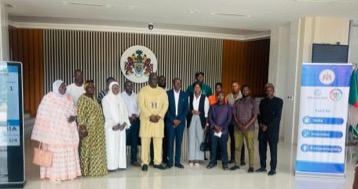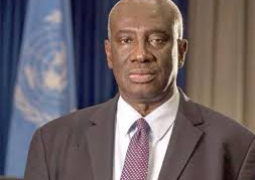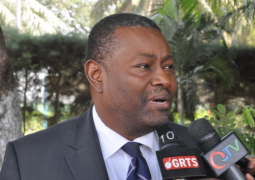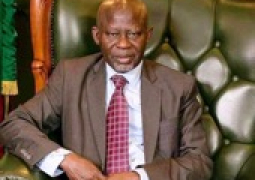
The project implementation, worth $5.5 million, was held on Tuesday 27 August 2024 at the Sir Dawda Kairaba Jawara International Conference Center.
Designed to update stakeholders on the SIE Fund and provide the TVET Centers with the necessary information on the application process and procedures for the upcoming call for proposals, the forum held a thorough discourse.
The SIE Fund project focuses on three main windows which include institutional improvement grant, training grant and start-up grant.
Samba Sowe, the Director of Science, Technology and Innovation at MoHERST, who doubles as the secretary of the SIE Fund committee under the ministry, gave detailed sets of presentations on the overview of the windows of the project and on the SIE Fund.
His presentations also highlighted the various windows that are related to governance structure, eligibility criteria and applications, evaluation procedure, quality assurance mechanism, and monitoring and evaluations.
In his welcoming remarks, MoHERST Permanent Secretary Yusupha Touray emphasised that apart from acquiring bachelor’s and Master’s degrees, it is vital for someone to effectively and adequately respond to the needs of the labour market.
As a ministry, he said, they needed to have a transformation in the education system, which is why they are working out a system that will transform ideas and knowledge into practical activities.
Dr Touray revealed that it is a collective responsibility to address skills development, which will help the youth to engage in meaningful development.
Professor Momodu Sallah, Central Projects Coordinating Unit operation manager at the Ministry of Finance and Economic Affairs, said one of their components is to work with MoHERST to support the Skills, Innovation and Entrepreneurship Fund of the TVET agenda.
This also includes social protection in which they are closely working with the National Social Protection Secretariat and other stakeholders to look at how they can support the most vulnerable, he pointed out, saying the innovation will be a game changer in the drive to ensure a successful project.
He called on all for more and functional dedication to adequately respond to the needs of young people, the unemployed and the industrial sector.
He further mentioned that technical vocational education is expensive. “If we do not have the right funding, it will be difficult to push the agenda forward,” he emphasised. “We also know that entrepreneurship needs training - to be incubated and to be supported - to develop start-ups, which takes time, skills and resources.”
Read Other Articles In Headlines





